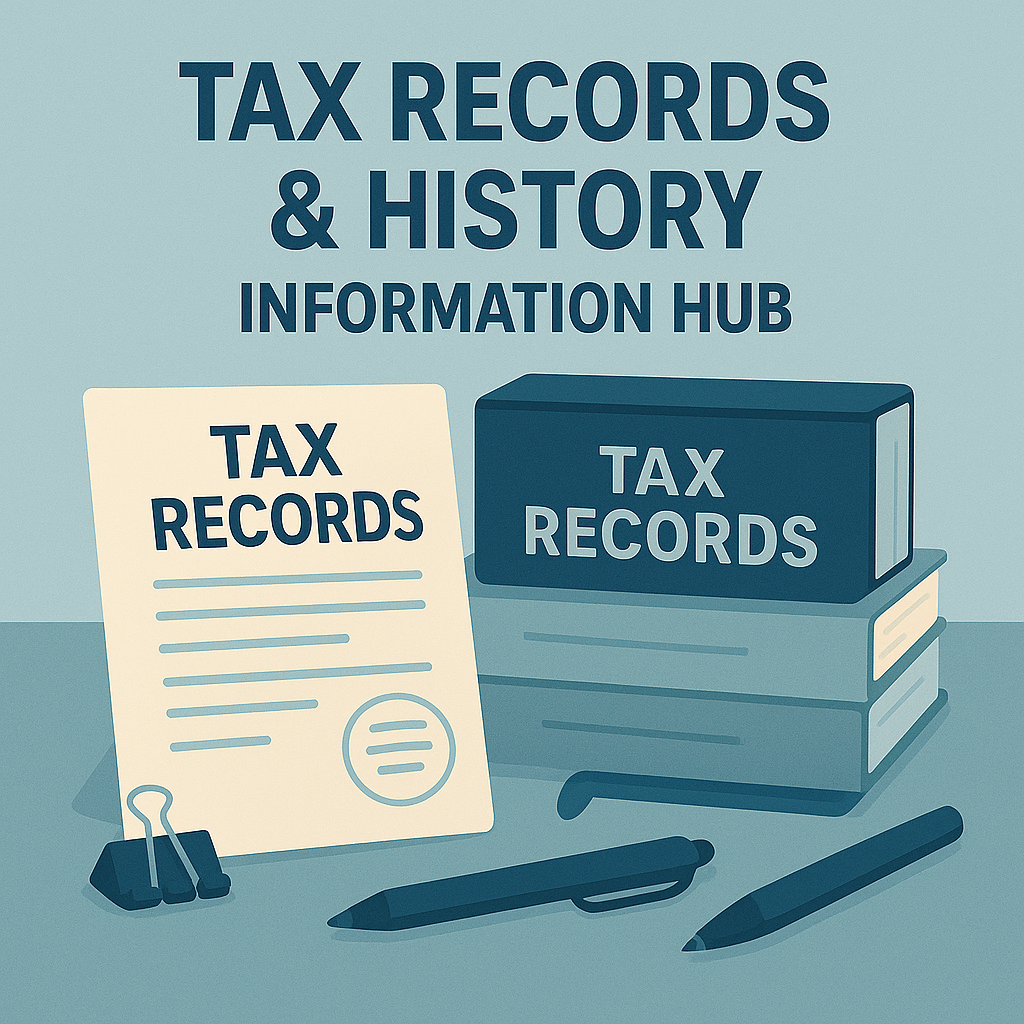Paper Trails Matter
The Tax Records & History Information Hub
Tax records may not be glamorous, but they’re essential. This hub helps you understand what tax documents to keep, how long to keep them, and why they matter when it comes to estate planning, closing out accounts, or helping your executor avoid a mess.

Table of Contents
Key Things To Know
ax documents create a clear paper trail of your income, assets, and financial responsibilities. When someone else needs to step in to manage your affairs, this section can save them weeks of work. Here’s what to gather:
- Copies of personal and business tax returns from at least the last 3 to 7 years
- Contact information for your tax preparer or CPA
- Your IRS and state tax ID numbers
- Records of estimated tax payments or payment plans
- Documentation of deductions, credits, and losses carried forward
- Property tax statements and records of any tax liens
- Gift tax filings, if you’ve made large gifts to others
- Trust or estate-related tax filings, if applicable
- Notes about any pending audits, disputes, or issues with the IRS or your state
- Instructions for where your digital tax files are stored, if you file electronically
A clear tax history helps your family or executor file final returns, avoid unnecessary penalties, and understand your financial life. It’s also helpful for financial advisors and estate attorneys who need to reference your past filings.
How To Get Started
Getting your tax history organized is one of the kindest things you can do for the people who may need to handle things after you’re gone. Here’s how to begin:
- Gather your recent tax returns: Start with the last seven years. If you filed jointly, include copies of both federal and state returns.
- List your tax preparer’s contact info: Whether you use a CPA, accountant, or a tax prep service, include their name, phone number, and email.
- Print or download digital returns: If you filed online, download PDF versions of your returns and store them in a secure digital folder. Note the login details and what software you used.
- Include property and business tax records: Look for any documents related to property taxes, business filings, or other specialized taxes you’ve paid.
- Make a quick notes page: Write down any irregularities in your tax history, such as skipped years, amended returns, or open issues with the IRS.
- Label and organize: Label each return by year. Keep them in a physical folder or include them in your CLEAR Kit with a simple table of contents.
- Update once a year: After filing each new return, add a copy to your folder and remove the oldest one if you want to keep things minimal.
Checklists, Guides, & Resources
Buried in Work offers a variety of checklists, guides, and other resources. Below are some of the most popular ones related to this information hub.
Find A Service Provider Near You
Need professional assistance? Use our directories to find trusted service providers near you who specialize in estate planning, end-of-life organization, and related services.
Articles
Frequently Asked Questions
Tax documents can feel like a black hole of forms and numbers, but they serve a real purpose in estate planning. Here are some common questions people ask when trying to organize this part of their CLEAR Kit.
Disclaimer: The information provided on this website and by Buried in Work is for general informational purposes only and should not be considered legal advice. Please consult with a qualified attorney or subject matter expert for advice specific to your situation.




